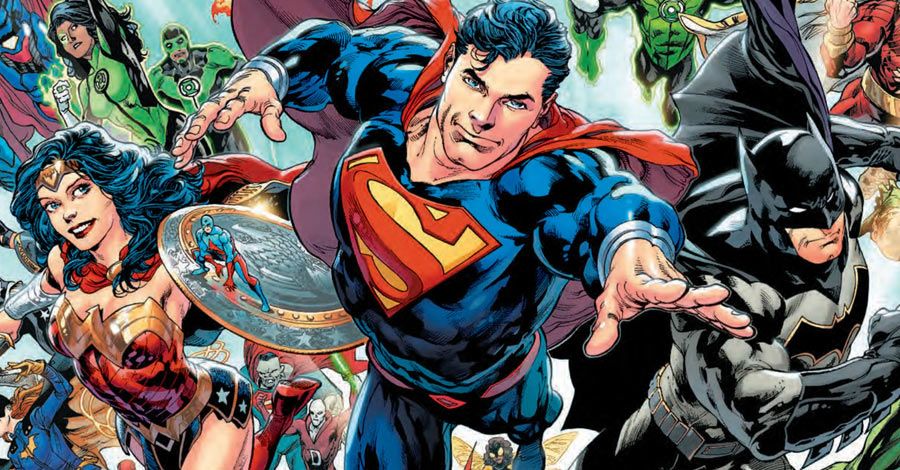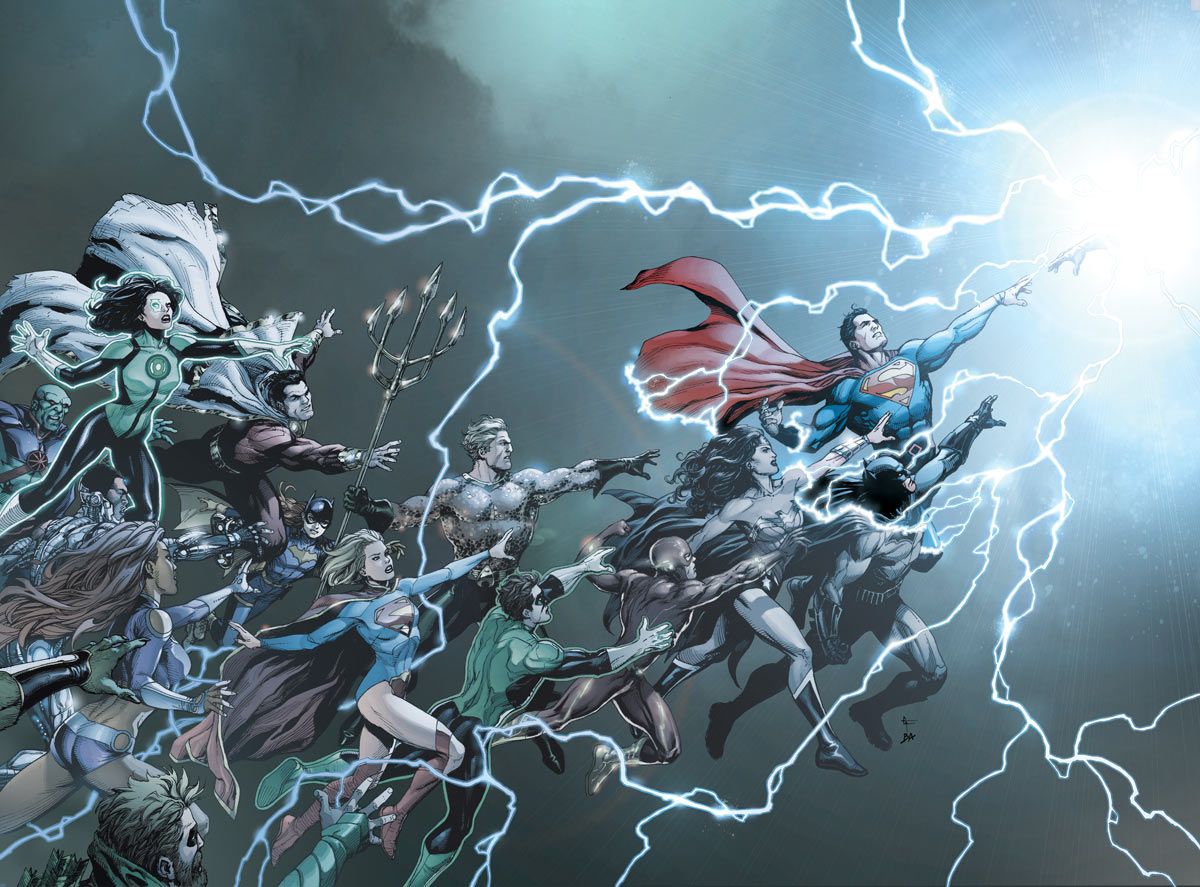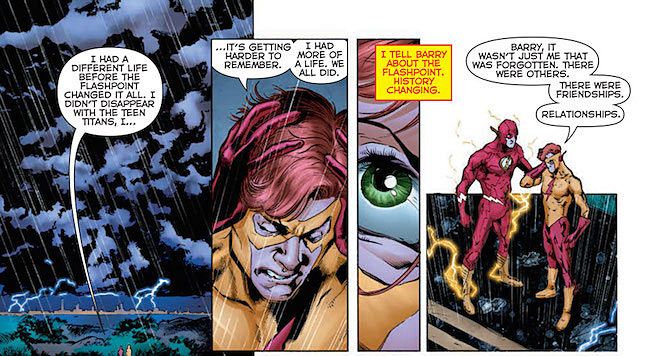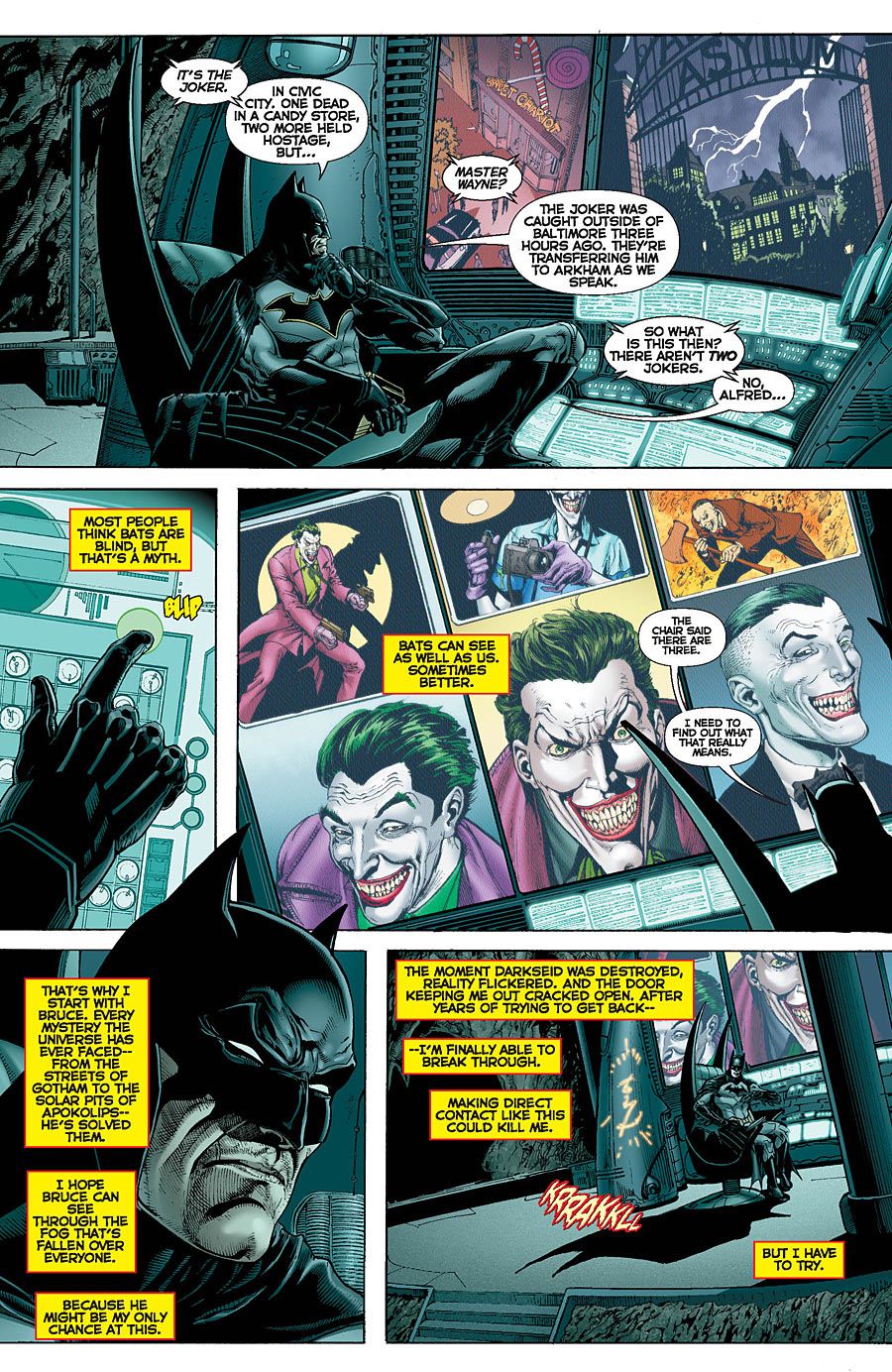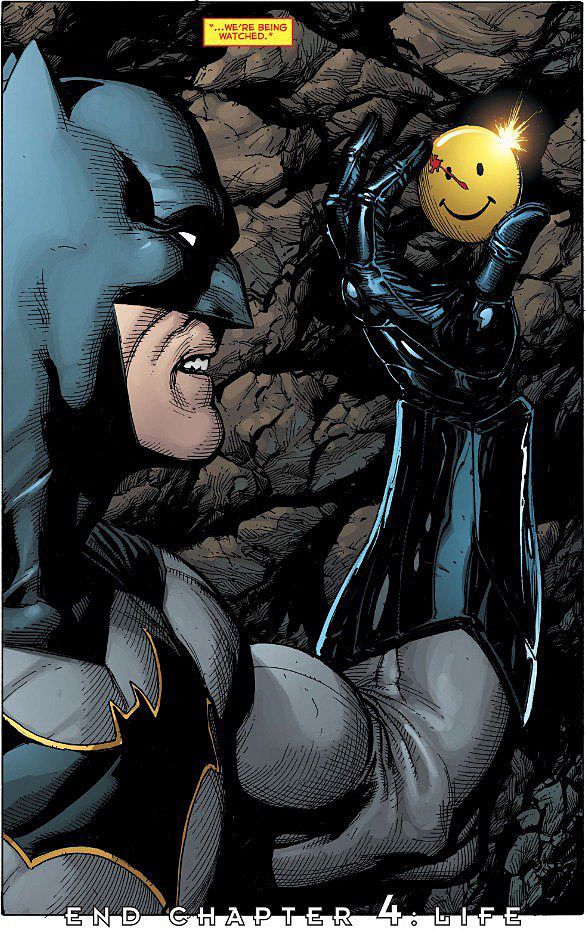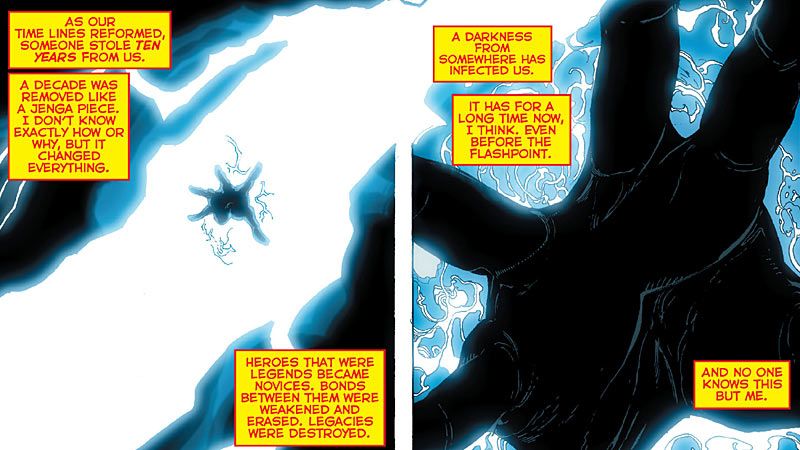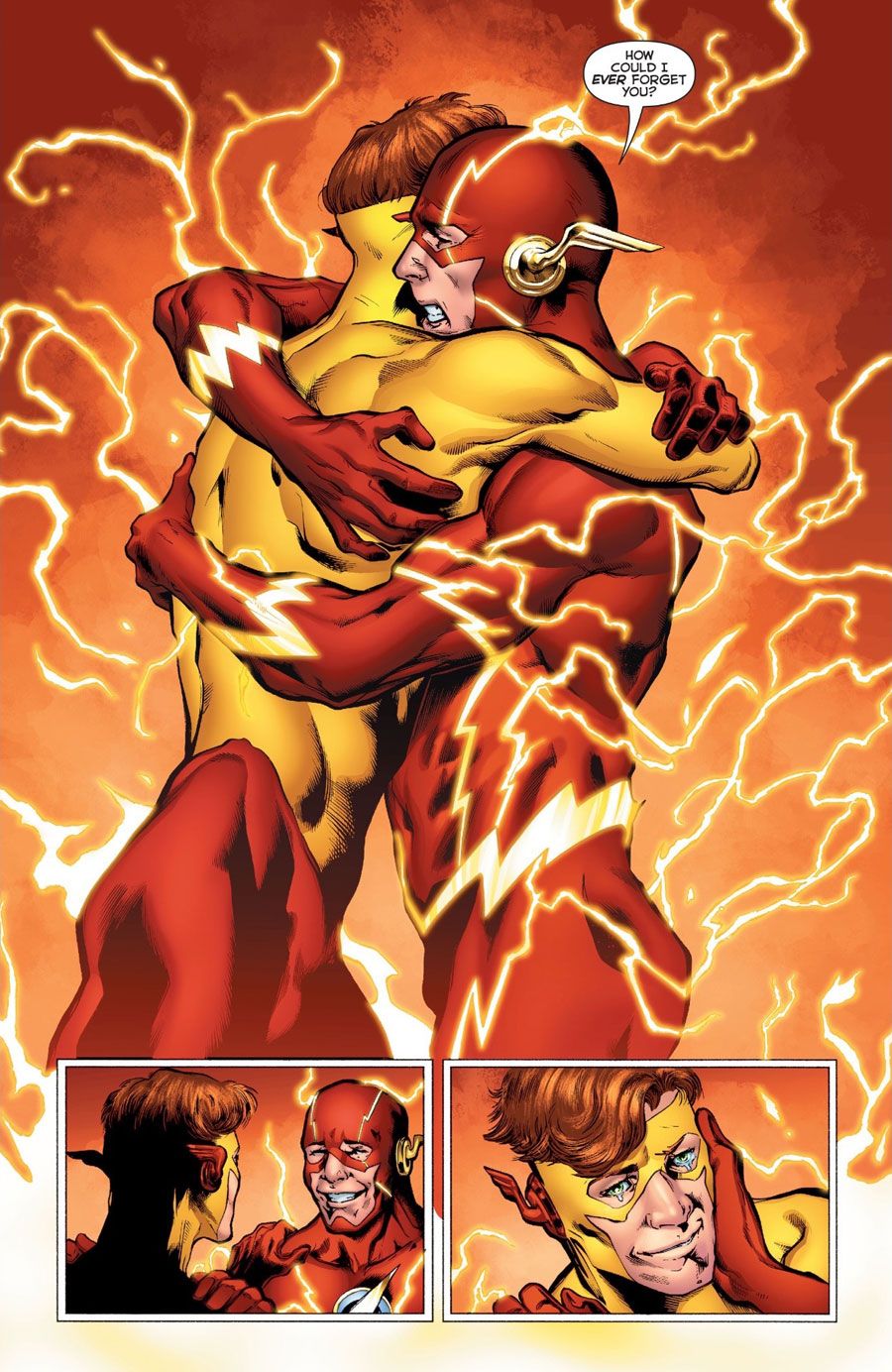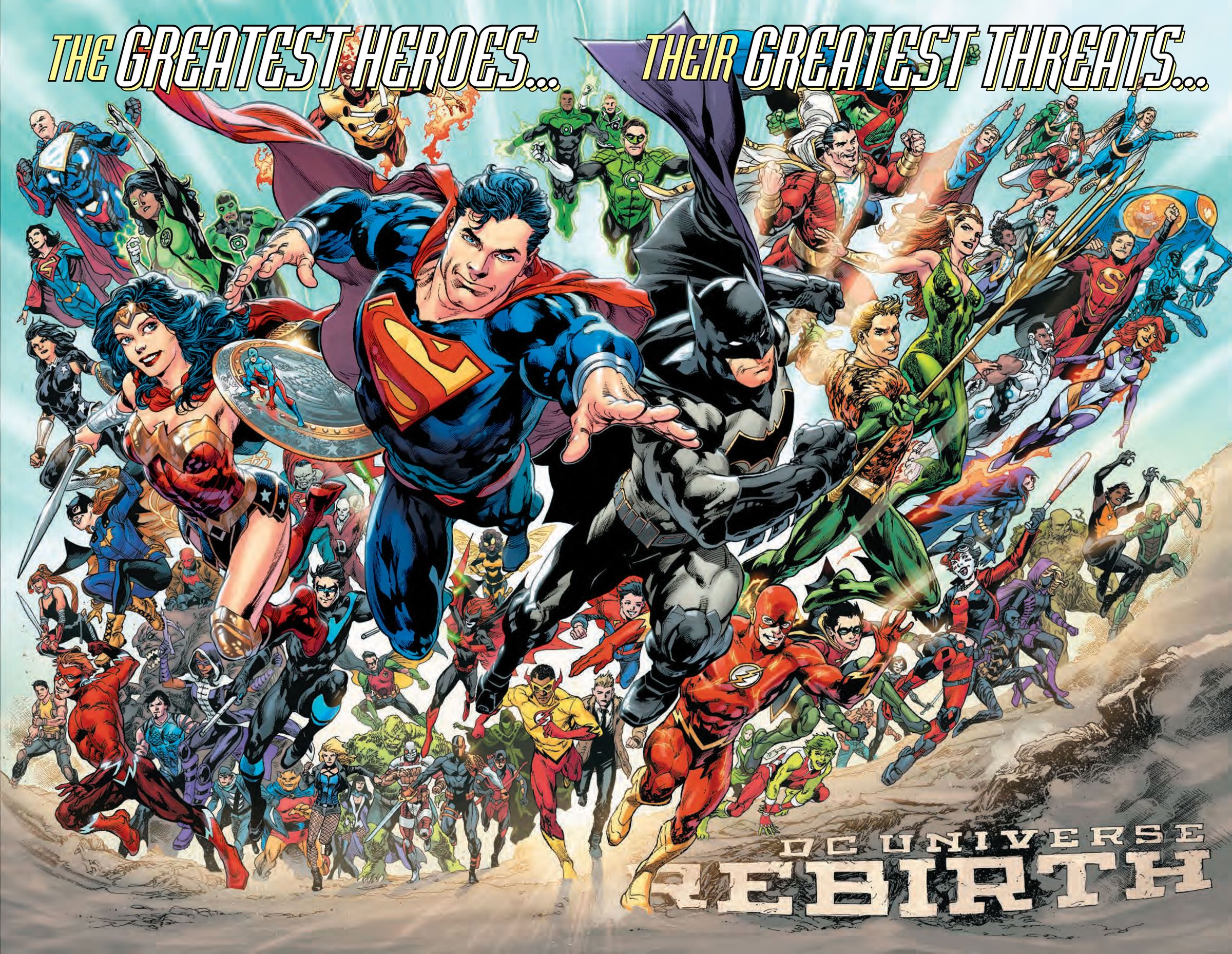SPOILER WARNING: Major spoilers follow for "DC Universe: Rebirth" #1, on sale now.
Back when I was an editor at DC Comics, I received a call one day. It was from Dick Giordano, former Batman editor, former VP-Executive Editor of DC Comics, one of the best Batman artists ever, and a legend. He called me to say that he thought a book I edited, "Birds of Prey" #16, was a great comic book, and that everyone involved did a fantastic job.
Naturally, I was blown away, and told Dick I really appreciated his call. Dick said to me, "Well, I'm quick to complain about the books I don't like, so I want to say good things about the books I do like."
It's one of those things you remember, and at the end of the day, we're all fans, no matter our status or station in life. We are captivated, enriched, and fulfilled by stories.
RELATED: How "DC Universe: Rebirth" Fulfills Its Promise of Restoring Legacy to DC Comics
At midnight on May 25, "DC Universe: Rebirth" #1 was released. Comic book specialty stores throughout the country opened their doors at that unusual hour for the fans who wanted to have the first full look at an historical event in the comic book industry.
I was one of them.
In the store, there was conversation and quasi-camaraderie, enthusiasm and non-spoiler code speak, talk of a crisis and an infinite number of earths in the multiverse, and the kind of deep-rooted geek energy with knowledge of heroes preceding the superhero cinematic universes and Netflix original programming.
After reaching home at 1:00 in the morning, I poured myself half a glass of pomegranate juice, put on my reading glasses, opened "DC Universe: Rebirth," and dived in with no expectations. It was a mystery, with a narrator of unknown identity, on a grand mission, and a ticking clock on his heels.
When the narrator was revealed to be Wally West, the heroic Kid Flash from DC Comics in the '60s, '70s and '80s, the tone was set for a reverence of the publisher's rich tapestry of superhero history.
Wally West was desperately running through time and space to warn the heroes of the DC Universe about the greatest threat to their collective existence, a threat so large and singularly impactful it affected memories, destroyed friendships, weakened the power of the world's greatest super-beings and threatened the future.
The mystery's unraveling begins with, and rests on the shoulder of, Batman, Earth's greatest living detective. It has been 24 hours since the disappearance and possible death of Superman, the mightiest and most humane superhuman in the world.
A delusional old man claiming to be a superhero from the past panics, at the same time a woman claiming to be from the future appears in search of Superman.
A brilliant scientist has disappeared, leaving a message for his college student to use size-changing technology to come find him in a world existing between the molecular structures of quantum reality.
New heroes are beginning to answer the call to their new, fantastic destinies. New enemies emerge from mythological roots. New alliances in their infancy, forged under fearful circumstances.
Wally sees all of this and, as with every re-entry into our world and our time, the fabric of his body disintegrates. He is struck by lightning, punished by the very force that made him extraordinary many years ago.
His only hope, his strongest need, is the woman he loves more than anything. If he finds her, when he finds her, he'll reconnect with this world. Live to run another day, to fight, to spread the gospel of friendship and great powers and the ultimate fight against a common foe.
As with the best stories of heroes and life, the one thing our hero dreads, the one he or she is fighting to prevent with their last breath... that one thing happens, and the aftermath is tragic. Sometimes, at the omega, when there is no more reason for hope, there is clarity and resolution, and the promised rest from which there is no awakening. But other times, something happens to us, someone who cares about us reaches out a hand, extends their heart, and looks us in the eyes with a sincere understanding.
At that moment, we are saved. That is life. That is drama.
That is the DC Universe, the living, pulsing, fantastic organism residing in the ideological realm of our childhoods and formative years and adulthoods. A place of infinite possibility and creativity, paradoxically distributed across an infinite number of worlds, spanning the timeline from the Second World War to the thirty-first century.
We have missed the DC Universe for some time now. Our emotions fueled by its absence, frustrations galvanized by its apparent reach just past the tips of our fingers, our minds rendered numb by the sensory overload of its distortion and victimization in the form of events and strategies and misunderstandings.
At midnight on May 25, "DC Universe: Rebirth" #1 was released, and the DC Universe began the climb up the mountain, to reach a new summit of existence.
DC Entertainment's Chief Creative Officer, writer of "DC Universe: Rebirth," and DC Comics' mastermind Geoff Johns put himself on the line in almost every way you could immediately imagine. Public statements in print and industry videos, interviews in major media outlets, appearances at comic book specialty stores, and a promise to give a refund to anyone who didn't like the comic book he wrote as the lightning rod to the future and prosperity of DC Comics.
He did this in the real world, and he did this in the story he crafted.
People have discussed the meta-text of the story, their knowledge of the industry and some of its power players informing their perception of meanings and metaphors under the words. It is a compelling belief.
If we choose to subscribe to it, then I would have to look at the heartbreaking scene in which Barry Allen, the former and present Flash, reached out to Wally West, pulling him from the end of existence, and saying to him, "How could I ever forget you?"
I would have to say that Geoff Johns is The Flash, and that the collective community of DC Universe fans is Wally West. I would have to feel that Johns embraced us, across time and space, across anything that divides us. I would have to believe that "DC Universe: Rebirth" #1 is the best four-color apology that I may ever have the pleasure of reading.
While the implications of the ending, the circumstantial evidence of the identity of the enemy, are subjects worthy of further examination, sometimes it's good to learn more before passing judgment. Sometimes, it's good to enjoy the moment of reunion, with a friend you thought was lost to you forever and scattered on the cosmic winds of revamps and retroactive continuity.
Just as we criticize and complain about the things we don't like, we can praise the things we do like. I loved "DC Universe: Rebirth" #1, for what it provided, the potential of its promise and the journey ahead. After all, it's about time.
Joseph Phillip Illidge is a public speaker on the subjects of race, comics and the corporate politics of diversity. In addition to his coverage by The New York Times, CNN Money, the BBC and Publishers Weekly, Joseph has been a speaker at John Jay College of Criminal Justice, Digital Book World's forum, Digitize Your Career: Marketing and Editing 2.0, Skidmore College, The School of Visual Arts, Purdue University, on the panel "Diversity in Comics: Race, Ethnicity, Gender and Sexual Orientation in American Comic Books" and at the Soho Gallery for Digital Art in New York City.
Joseph is the Head Writer for Verge Entertainment. Verge has developed an extensive library of intellectual properties for live-action and animated television and film, video games, graphic novels and web-based entertainment.
His graphic novel project, "The Ren," about the romance between a young musician from the South and a Harlem-born dancer in 1925, set against the backdrop of a crime war, will be published by First Second Books, a division of Macmillan.
Joseph's newest comic book project is the upcoming Scout Comics miniseries "Solarman," a revamp of a teenage superhero originally written by Stan Lee.

